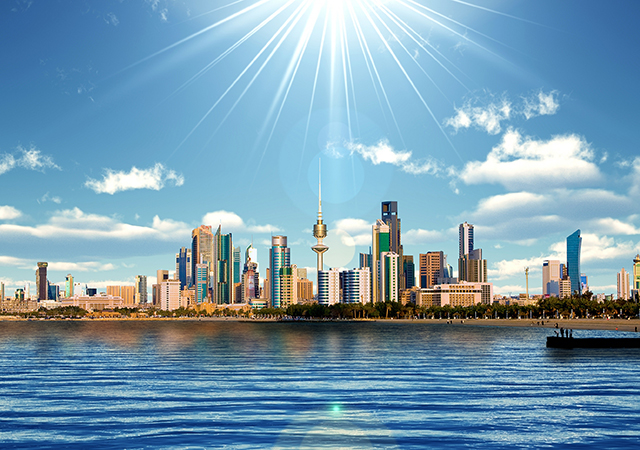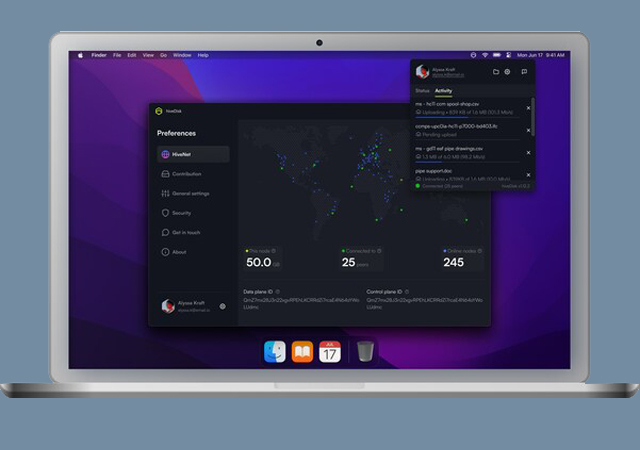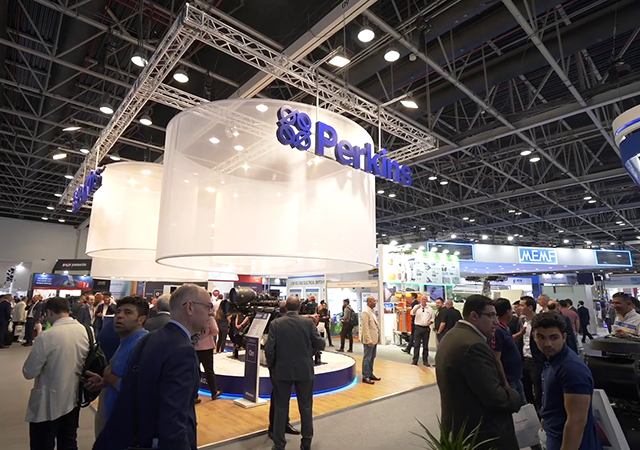
 EGA billets: Dubal and Emal have earned a high reputation for top-quality manufacturing
EGA billets: Dubal and Emal have earned a high reputation for top-quality manufacturing
With global demand for primary aluminium forecast to grow at a rate of 5.8 per cent per year for the coming decade, the net export capacity of the Gulf Co-operation Council (GCC) region places the Middle East as a whole in a strong position to sustain its position as a rapidly growing aluminium hub.
Boasting an annual production capacity of 2.4 million tonnes per annum, Emirates Global Aluminium (EGA) – the UAE based, aluminium conglomerate owned equally by Mubadala Development Company of Abu Dhabi (Mubadala), and Investment Corporation of Dubai (ICD) – currently accounts for more than 50 per cent of the GCC’s total production capacity, and is therefore strongly positioned for sustained success.
Indeed, EGA’s production capacity places the company among the five largest primary aluminium producers in the world; and makes the UAE the world’s fourth largest aluminium producing country.
Moreover, approximately 90 per cent of EGA’s production is value-added products – specifically billet, foundry alloy and slab – which analysts predict will account for the major share of demand growth in the next decade, primarily for end-use in the transportation, construction and electrical sectors, to cater to and be driven by the urbanisation and industrialisation of emerging countries.
The implications of this for the UAE are huge. At the most fundamental level, EGA is the nation’s industrial flagship – aluminium having been the first sector of investment in the UAE’s strategic move towards economic diversification and away from dependence on oil and gas in the 1970s. Having been officially incorporated in 2014 by Mubadala and ICD combining their aluminium industry assets – namely Dubai Aluminium (Dubal, also known as EGA Jebel Ali) and Emirates Aluminium (Emal, also known as EGA Al Taweelah) – EGA’s birth was a historic milestone for the UAE; for the first time in the country’s 43-year history, two Emirati government entities from two different emirates came together to build a global player. By leveraging the inherent synergies in integration, EGA is greater than the sum of its parts. The 35-year legacy brought by Dubal (which began operating in 1979) and the five-year legacy of Emal (where commissioning began at the end of 2009) lend 40 years of experience and expertise to EGA, making the company a giant from the outset. The spin-off in terms of higher GDP contribution will be substantial.
Then there’s job creation. Since inception, EGA’s operating subsidiaries have ranked among the UAE’s largest employers. It’s a position that still holds today: at present, EGA provides direct employment to approximately 7,000 people in the UAE. Local growth and expansion plans have the potential to create another 2,000 direct job opportunities within the UAE by 2020. Through its dealings with suppliers and the logistics/shipping industries, EGA also provides indirect employment to about 19,000 people in the UAE – with a further 6,000 indirect jobs to be generated by 2020 (total employment of over 33,000 people in the UAE aluminium sector).
Fully aligned with the government’s policies and the notion that a highly qualified and skilled Emirati workforce is essential to the future success of the company and the nation, Emiratisation is at the core of the company’s employment strategy. UAE nationals accounted for almost 20 per cent of EGA’s workforce in 2014 (the figure rising to 48 per cent in corporate functions); and the company intends to increase the proportion to 22 per cent in 2015. Targeted recruitment efforts are supported by competitive compensation and benefits packages; and complemented by development and training programmes for UAE national employees (whether school-leavers or university graduates), individual development plans to acquire the skills and management competencies required for promotion, scholarships for further study, and much more.
 |
|
Emiratisation is at the core of EGA’s employment strategy |
TOP-QUALITY OFFERINGS
Over the years, Dubal and Emal have earned a solid reputation for manufacturing high-quality aluminium products in three main categories for end-use in key industries within the modern international market. The categories and their applications comprise high-purity and foundry re-melt products (for electronics and aerospace, and automotive applications respectively); rolled products (for packaging, lithographic sheets and the automotive industry), and billets for extrusion and forging (for construction, industrial, transportation and automotive purposes). Over 350 customers are served in about 68 countries, predominantly in Asia, Europe, the Mena region and the Americas, with some 88.5 per cent of annual production in 2014 having been exported. Indeed, Dubal and Emal rank among the highest exporters by volume through Dubai’s Jebel Ali Port and Abu Dhabi’s Khalifa Port respectively – further underscoring the contribution of the business to the UAE economy.
The remaining 11.5 per cent (equating to more than 255,000 tonnes of finished products) was sold to downstream industries within the UAE – primarily in the form of billets that are used to manufacture components for construction and transportation projects integral to the advancement of the UAE’s infrastructure. Moreover, Emal is the anchor tenant in the dedicated aluminium industry cluster being built in Khalifa Industrial Zone Abu Dhabi, Al Taweelah, and has the capability to deliver both cast and liquid metal to the downstream businesses located in the cluster. The growth of these businesses will contribute further to economic diversification and provide further employment opportunities in the UAE.
Several benefits will accrue to those downstream industries supplied with hot liquid metal directly from the EGA Al Taweelah operation. These include eliminating shipping costs, massive reductions in energy dependency due to not having to re-melt cold product, as well as lowered CO2 emissions, thus enhancing their environmental footprint. Not surprisingly, these advantages are drawing the attention of international business, leading to three downstream industry development projects already charted at Kizad.
Minimising the environmental impact of its operations is another fundamental endeavour at EGA. The company is committed to achieving operational excellence through continuous improvement and innovation in the aluminium smelting process so as to produce the world’s best quality aluminium products while achieving maximum operating efficiencies. It’s a quest that has yielded multiple in-house developed technologies that enhance production processes, achieve higher production volumes, optimise raw material and energy consumption levels, improve operational safety and reduce environmental impact.
 |
|
EGA’s DX+ Reduction Cell Technology in use at Potline 3, Emal |
INNOVATIONS
EGA’s proprietary DX and DX+ Reduction Cell Technologies not only deliver against each of these dimensions, but also perform at best-in-class levels across all parameters. Developed at Dubal and deployed at industrial scale at Emal, these technologies are inherently saleable. Aluminium Bahrain has already specified DX+ Reduction Cell Technology for the Bankable Feasibility Study of its proposed Line 6 expansion project; and other major players from around the world have expressed strong interest in acquiring licences from EGA to use the technology. Sales of EGA’s technologies offer an additional income stream to the business, contributing further to the GDP of the UAE.
EGA has also developed proprietary pot control systems, sophisticated anode rod tracking technology, effective alumina management strategies, implemented process advances to optimise energy consumption and contain greenhouse gas emissions, and much more. Every improvement achieved inspires continual innovation to reach new levels. This has led most recently to a plan to develop centres of excellence in aluminium research and development in the UAE; as well as forums for knowledge sharing and benchmarking. EGA already works closely with universities in the UAE and across the world, an approach that will not only advance the global aluminium industry but also help sustain EGA’s leading position in the sector.
ENVIRONMENT AND CSR
At operational level, EGA made significant progress in 2014 towards achieving its corporate commitment to zero harm to the environment by minimising harmful emissions and adopting world-class waste management practices. As part of EGA’s ISO14001:2004-certified environmental management system (EMS) commitments, investments totalling more than $1.3 billion have been made in emission control equipment and environmental control projects. A close watch is kept on greenhouse gas emissions, with the help of the International Aluminium Institute (IAI), to ensure that these are contained within international standards – both Dubal and Emal recorded perfluorocarbon (PFC) emissions far below the industry average. Benchmark specific energy consumption levels were sustained in 2014, with overall lower energy consumption resulting in reduced consumption of fossil fuels – thus further minimising EGA’s carbon footprint, and that of the UAE as a whole.
As a responsible corporate citizen, EGA is committed to contributing meaningfully to the communities surrounding its operations. The company implements initiatives and hosts events that benefit the community, participates in and/or sponsors activities hosted by charitable organisations, and encourages employees to engage in community work by donating their time and talents. A recent example of EGA’s corporate social responsibility (CSR) efforts is two recreation parks that were sponsored and built by EGA in the Al Samha area of Abu Dhabi. Other examples include fundraising for centres caring for individuals with autism, collecting aluminium cans for recycling, and participating in environment clean-up campaigns. The company’s annual CSR plan also features activities to engage employees and the community on important issues such as Earth Hour and World Diabetes Day.

















